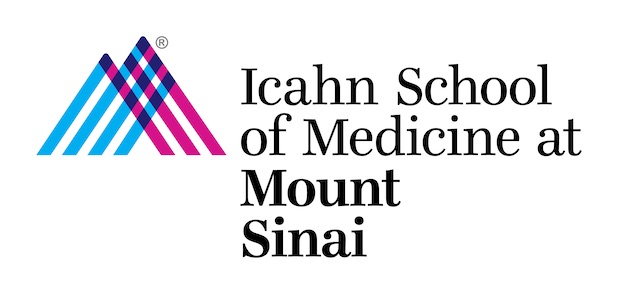This course provides context and best practices for identifying older adults at risk for poor outcomes, including falls, delirium, and caregiving challenges.
Care Coordination
What You’ll Learn
- Define care coordination
- Define the clinician’s role in care coordination
- Identify patients and caregivers who will most benefit from care coordination
- Identify strategies for embedding care coordination into practice
What You’ll Earn
Only CAPC members who are logged in can earn the following free Continuing Education Credits:
- Case Management: 1.00 CE
- Medicine: 0.75 CME
- Nursing: 1.25 CNE
- Social Work: 1.00 CE (NYSED)
Social work credits are approved by the New York State Education Department. Social workers licensed outside of New York should contact their regulatory board to determine course approval for continuing education credits.
To take this course, log in. Or, check here to see if your organization is a member.
LoginTake the course
Take the post-test
Complete evaluation
Download your certificate
Tools & Resources
A structured process for assessing gaps the care coordination needs of patients and organizational stakeholders. Center to Advance Palliative Care, 2016.
Course citations. Center to Advance Palliative Care, 2024.
A model for addressing gaps in care for patients living with serious illness, including safe care transitions. American Hospital Association, 2012.
Area Agencies on Aging (AAAs) provide a range of aging services to enable older adults to “age in place” in their homes and communities.
A publication by the California Health Care Foundation. Includes case studies, and guidance for improving care coordination in primary care.
Guidance from the Case Management Society of America on case management certification options.
Each publication of The Commission's Issue Briefs covers topics that are timely and relevant for today’s professional case manager.
The Care Transitions Intervention® (CTI) is an evidence-based, short-term model that has proven to reduce readmission rates in various populations by activating patient engagement in their health management.
Department of Health and Human Services, Centers for Medicare and Medicaid Services.
Guidance from the NQF on measures for care coordionation.
Toolkit with billing and coding best practices for palliative care services delivered in the hospital or the community.
Accreditations and Disclosures
Physicians
This activity has been planned and implemented in accordance with the accreditation requirements and policies of the Accreditation Council for Continuing Medical Education (ACCME) through the providership of the Icahn School of Medicine at Mount Sinai. The Icahn School of Medicine at Mount Sinai is accredited by the ACCME to provide continuing medical education for physicians.
Icahn School of Medicine at Mount Sinai designates this enduring material for a maximum of 0.75 AMA PRA Category 1 Credit(s) ™ effective 2/15/2024 - 2/15/2026. Physicians should claim only the credit commensurate with the extent of their participation in the activity.
CME Released: 2/15/2024; Valid for credit through 2/15/2026
Estimated Time of Completion for CME: 45 minutes
Physician Assistants
The American Academy of Physician Assistants (AAPA) accepts credit from organizations accredited by the ACCME. Icahn School of Medicine at Mount Sinai designates this enduring material with 0.75 AMA PRA Category 1 Credit(s)™ as specified, which can be applied to the continuing education of Physician Assistants. Physician Assistants should claim only the credit commensurate with the extent of their participation in the activity.
Nurses (Registered Nurses, Advanced Practice Registered Nurses, Licensed Nurses)
This continuing nursing education activity was approved by the Pennsylvania State Nurses Association Approver Unit, an accredited approver by the American Nurses Credentialing Center’s Commission on Accreditation.
CNE Released: 12/31/2021; Valid for credit through 12/12/2024
Estimated Time of Completion for CNE: 60 minutes
Social Workers
This program is approved by the National Association of Social Workers (Approval # 86437049-1637) for 1.0 continuing education contact hours effective 3/06/2024 - 3/31/2025.
Center to Advance Palliative Care SW CPE #0257 is recognized by the New York State Education Department's State Board for Social Work as an approved provider of continuing education for licensed social workers effective 7/31/2024 - 7/31/2027. This program has been approved for 1.0 continuing education contact hours.
Certified Case Managers
This program is approved by The Commission for Case Manager Certification (Approval # 230004084) to provide 1.0 continuing education credits to CCM® board certified case managers.
Verification of Attendance (VOA)
All users that are not eligible for continuing education will receive a Verification of Attendance certificate upon completion of the course.
Course Media Instructions
Software Requirements: CAPC’s online curriculum, tools and technical assistance are designed to be fully compatible through multiple platforms: computer, smartphone (iOS or Android) or tablet running the following web browsers: Google Chrome, Mozilla Firefox, Safari, and Microsoft Edge.
Content: Each course is comprised of interactive learning components (articles, tools, or supporting materials), video and audio. The learner will be expected to complete various interactive processes such as matching, simulated clinical decision-making, fill in the blanks, and highlighting content.
To successfully earn credit, participants must complete the activity online, receive a minimum score of 80% on the post-test, and complete the course evaluation. A printable certificate of completion or a continuing award document specific to the discipline will be awarded.
Target Audience: Each program is developed for chaplains/spiritual counselors, nurses, physicians, physician assistants, social workers, case managers, palliative care program leaders, and healthcare leaders (hospital, health system and community care).
Activity Description/Statement of Needs: CAPC’s online curriculum provides training in two critical areas. Technical assistance courses are designed to help palliative care program leaders address key challenges such as implementing palliative care in community health care settings. Clinical coursework provides fundamental training in pain and symptom management, communication, and other key skills needed to work with patients with serious illness.
Disclaimers: The opinions expressed in the courses are those of the authors and do not necessarily represent the views of the sponsor, the educational partner, or the supporter. Please review complete prescribing information of specific drugs or combination of drugs, including indications, contraindications, warnings, and adverse effects before administering pharmacologic therapy to patients.
Activities do not contain information on commercial products/devices that are unlabeled for use or investigational uses of products not yet approved.
Faculty Disclosures and Conflict of Interest: It is the policy of CAPC to ensure objectivity, balance, independence, transparency, and scientific rigor in all CME-provided educational activities per the highest standards of ANCC and ACGME guidelines. There may be other organizations depending on the topic. For all courses, Faculty/Presenters/Authors/Content Reviewers complete conflict of interest forms to determine any potential bias or conflict of interest. Disclosures are available for each activity.
None of the individuals in control of content have relevant financial relationships to disclose. All relevant financial relationships have been mitigated.
Copyright Information: All rights reserved by the Center to Advance Palliative Care (CAPC). No materials may be used or reproduced in any manner whatsoever without written permission except in the case of brief quotations embodied in articles or reviews.
Privacy Information: To read CAPC’s privacy policy, click here.
Course Faculty
Andrew E. Esch, MD, MBA. Consultant, Center to Advance Palliative Care.
Lolita Melhado, MSN, ARNP, FNP-BC. Family Nurse Practitioner/Palliative Care, Gulf Coast Medical Center - Lee Memorial Health System.
Constance Dahlin, MSN, ANP-BC, ACHPN, FPCN, FAAN. Consultant, Center to Advance Palliative Care.
Peer Reviewers
Elizabeth Mann, MD. Fellow, Geriatrics and Palliative Medicine, Icahn School of Medicine at Mount Sinai.
Contact information: For answers to frequently asked questions about CAPC courses and CEs, read the Online Course FAQ. For all other questions, please contact support.

Provided by the Icahn School of Medicine at Mount Sinai.
Assessing and supporting caregivers of people with serious illness.
